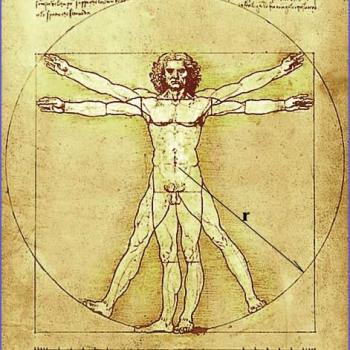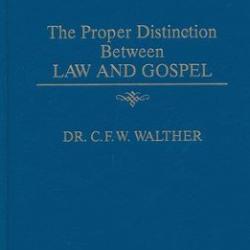
+++
Prefatory comment: This post, like the last one on this blog, deals with the issue of domestic violence and domestic abuse (technically, these are different things), which I am also currently doing a series on here. Again, please note that I am representing only myself in this post and do not speak for Pastor Cooper.
Trigger warning: This post, which also appears on my own blog this morning as “What does the LC-MS document “When Homes are Heartless” Mean? (part 9 of 10),” is likely to be seen as not sufficiently sensitive or even as insensitive. If sensitivity is what you want, please read part 5 in this 10 part series (again if you must) and come back to this post later.
+++
In this and the last post, we will see some of the consequences that occur when persons are controlled by the idea that abuse is ultimately just about control. Put bluntly: control, at least by men, is abuse.

If that is not nuanced enough for you, we could perhaps effectively sum up the matter as follows: If you are a woman, being under authority where your rights are not a prominent part of the overall picture is always abuse, period.
In other words, what we see is that for many in the world of domestic abuse prevention, the real problem is not something like the abuse of male headship. Rather, male headship itself is the problem.

In the last post, I said, among other controversial things, the following:
“And isn’t it easy to see how men specifically might fall into traps whereby they look more to “control” than “manage” (is this just a clever synonym for control the patriarchy uses? What am I–evil man that I am perhaps!–doing right now?) the household, not excluding their wives? Especially when there are in fact Christian wives among them who really are not eager to show them respect (you *aren’t* worthy!), listen to them, uphold their honor and goodness in the eyes of others, apologize for their own selfish and controlling behaviors, etc.?”
Well, even if their wives really do have these problems, men had better be extremely careful. When the highly popular and influential domestic abuse advocate Lundy Bancroft makes it clear that:
- “…you have rights and…they are equal to his” (340).
- “There can be no positive communication when one person doesn’t respect the other and strives to avoid equality” (351).
- “[w]e must teach equality” (388)
- “…abuse comes from…one person’s decision to claim a higher status than another…” (387)
…without talking about just what is meant be equality, one can guess that he probably is not too eager to find room for Christian notions of how male headship might work.

In addition, as one commenter in the private online discussion group (discussed in earlier posts) brought out, men must also contend with definitions of abuse like those from the federal government itself, found at https://www.justice.gov/ovw/domestic-violence, the summary of which is posted below:
“We define domestic violence as a pattern of abusive behavior in any relationship that is used by one partner to gain or maintain power and control over another intimate partner. Domestic violence can be physical, sexual, emotional, economic, or psychological actions or threats of actions that influence another person. This includes any behaviors that intimidate[32], manipulate, humiliate, isolate, frighten, terrorize, coerce, threaten, blame, hurt, injure, or wound someone.”
First, just read my italics above alone–and then just read my bolded words alone–and ask yourself if it makes sense for me to bring these things to our attention and ask hard questions (it does, even as we note that domestic abusers also often do many of these things). I mean, of course, as good Christians, we would never want to influence anyone or blame anyone for anything, would we?

As Lundy Bancroft points out, angry or controlling partners will “frequently tell[] you what you should think” (xxii), and again, he also uses the word abuser “as a shorthand way of saying ‘men who chronically make their partners feel mistreated or devalued.’” (xviii, Why Does He Do That?, 2002). If someone persists in the belief that they are right, making you feel guilty, that could never be an indication that an evaluation of one’s own thoughts and behaviors is in order, right? Instead, the problem must be the other person! After all, as Bancroft pronounces, presumably anything you might feel is a “guilt trip” is also abusive (347)!
Its sad the Reformation happened, but let's be frank with the blame: it was the Roman Catholic church's fault. You just can't run roughshod over the peace God truly gives in Christ (Rom. 5:1, I John 5:12-13), placing yourself over him.
— Theology Like a Child (@Infanttheology) April 22, 2018
In addition, it is important to note that, as the domestic abuse hotline puts it (presumably, the place where When Homes are Heartless gets its working definition of “domestic abuse,” even though it is not included in this document itself) “making all the big decisions” is also defined as abuse! [33] Bancroft also works in these grooves when he says “Interference with your freedom or independence is abuse. If he… discourages you from pursuing your dreams… he is trying to undermine your independence” (127). Here, just think of the internet firestorm caused a few weeks ago from a Christian woman, Lori Alexander, making the simple and uncontroversial point that men tend to prefer marrying debt-free virgins without tattoos (see original post here, as well as a couple reactions on the opposite ends of the spectrum here and here).

We also note that “stereotyped beliefs about women’s sex roles contribute to the risk of abuse,” including things like convictions that “women should take care of the home” (120). Nevermind that many women, informed by the Bible, have this conviction. Perhaps they also contribute to the risk of abuse, and are in effect traitors to their sex? Perhaps the remnant of Christian women endeavoring to train young women to be good wives and mothers might want to consider that passages like Ephesians 5 are priming their young charges to be abused?
Perhaps feminists like Bancroft agree with what Richard Dawkins said years ago? That raising kids in the Christian faith is child abuse?

And what, in our egalitarian world, could be more contentious and cause more problems (perceived problems!) than a man like the Apostle Paul? What might having “a respectful and equal relationship with a woman” (Bancroft, xxi) looked like for him? Would his view of marriage pass muster today? Would his view of being a slave of Christ? What kind of sick person, after all, finds contentment and joy in slavery, submission, obedience?
If Christ were loving the Church like Christ loved the Church, there would be no need for labels like orthodoxy and heresy. Theologians wouldn't feel lorded over and controlled. They would spontaneously respect/submit to Christ.
— Matthew E. Cochran (@matt_e_cochran) June 2, 2018
Increasingly, in the Western world, even those more conservative folks who believe that we do need traditional institutions that shape and mold us so that we can make good choices, we nevertheless do not want to focus on, for the most part (remember, I am a Lutheran), submitting to them. We certainly do not want to wildly exacerbate our delight in doing so, at least as a general matter of course.
As in Radical Lutheranism, there’s a rejection of personal responsibility by putting the onus on God or the husband to inspire right behavior. Thus it becomes God’s or the man’s fault when I sin since if I were well-loved, I would “spontaneously” love well. Not so, unfortunately.
— Rachel Boyer (@chefboyergirl) June 2, 2018
What, really, could be worse!? I mean, these persons aren’t Jesus, who, of course, we would never hesitate to submit to—at least in person!

And doesn’t Bancroft simply put the icing on the cake when he reminds us as regards the vast majority of abusers: “Their value system is unhealthy, not their psychology”? (38)

This post, 9 of 10 in this series, has examined one of the critical consequences of being controlled by the idea that control is abuse.
In the final post, we will examine a few more.
FIN
Images: Bill Gothard: https://en.wikipedia.org/wiki/File:Bill_Gothard_03.jpg ; Source IBLP staff (Creative Commons Attribution 3.0 Unported license) ; Mary Kassian from https://twitter.com/marykassian ; Lundy Bancroft from http://lundybancroft.com/
Notes:
[32] “Intimidate”: Should I assume that the fact that some men simply are physically and/or verbally intimidating, even if they don’t try to be is taken into consideration here? I’m not feeling very trusting these days. : )
[33] This was defended then by one member of the task force:
“‘Making the big decisions’ in an abusive way would be to do so without (and even contrary) to the input of the spouse or without consideration of them or what’s best for the family, but based on their own desires/ plans alone.”











